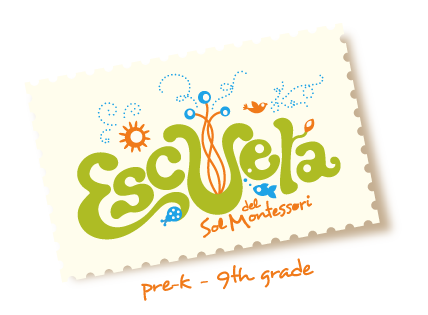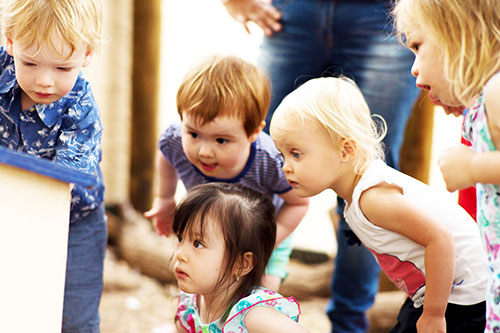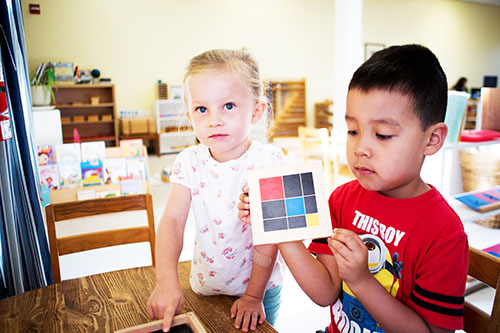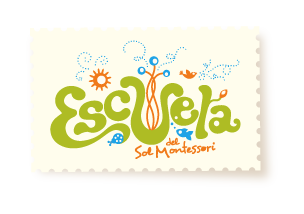When you think of school you might remember sitting in rows of desks, with a teacher filling you full of knowledge you are required to memorize and repeat; all of your fellow students working on the same thing at the same time until the bell says you get to go to recess. The “factory model” of education, refined during the Industrial Revolution, was born out of assumptions about work, play, and learning that are outdated, to say the least. It may be an efficient way to “educate”, but it’s not a science-based, time-tested, child-led way to encourage young people to become critical thinkers and lifelong learners. Luckily, innovative alternative schools have been around for over a century! Escuela del Sol Montessori school is in its 53rd year.
“Our K–12 system largely still adheres to the century-old, industrial-age factory model of education. A century ago, maybe it made sense to adopt seat-time requirements for graduation and pay teachers based on their educational credentials and seniority. Educators were right to fear the large class sizes that prevailed in many schools. But the factory model of education is the wrong model for the 21st century.” – US Secretary of Education Arne Duncan (2010)
Let’s compare conventional education to the exploration-based Montessori method of learning. Montessori is a positive, active approach to education that develops self-motivation, self-discipline and critical thinking. What does that mean? And what does it look like in a classroom? Montessori children are encouraged to ask questions and then find their own answers. They get to choose their work with the help of a teacher, often called a guide. And while there are tables that children may choose to work at, they often work on small rugs on the floor or even outdoors. And that’s only the beginning.
Montessori:
Active, Individualized Learning. Because the Montessori child has some choice in their work, they can follow their interests and learn about how they learn. Time and agency are given to support a depth of knowledge and understanding. Children work at their own pace, sometimes devouring material and plowing ahead, other times slowly and methodically repeating steps to ensure a solid foundation. They manipulate hands-on materials to explore complex subjects, like Geometry, starting as young as age 2 or 3. Because classrooms are multi-age, students learn from their peers and teachers while observing and actively engaging within the ever-changing world around them. And because students are working on individually chosen subjects simultaneously, they discover the interconnectedness of the world around them.
To learn more about mixed-age classrooms check out Why Escuela?
Conventional:
Class Learning. In conventional classrooms, students are typically doing the same work at the same time, under the watchful eye of a teacher who requires classroom and academic compliance. Learning is adult-driven, where one teacher imparts information to all the students in largely the same way. Academic subjects are often taught independent of one another and learning moves at an average or pre-determined pace.
Montessori:
Assessment Without Standardized Testing. The Montessori child learns to evaluate their work using auto-didactic materials and seeking guidance from their peers and teachers. They learn to embrace struggle and mistake making, and their teachers – called guides – support their quests to find solutions without simply providing answers. This relationship based on trust and respect encourages students to take supported, age-appropriate risks in both academic and social learning. At Escuela del Sol Montessori School, teachers work with students over a multi-year cycle, and because lessons are given to individuals and small groups, teachers are able to develop a deep and broad understanding of each student’s interests and skills. They use this knowledge to personalize lessons and work plans according to each student’s needs, interests and abilities. Teachers use observation, conversation, and small-group or individual interaction (including informal “quizzing”) to get continuous feedback from each child about how they are thinking and what they are understanding. This form of assessment happens continuously and is far more accurate and nuanced than conventional testing.
To learn more about Individualized Education & Assessment and Strong Academics check out Why Escuela?
Conventional:
Grading and Testing. Students in conventional classrooms turn work into the teacher who grades it. Because assignments are often “pre-packaged” and grading subjective, the depth of knowledge, mastery or interest the student has in any subject is rarely reflected. Grading ranks students and encourages competition for grades, which may cause children to fear mistakes and become risk averse. The narrowness of this system certainly does not encourage creative exploration, problem solving and expression of knowledge. In conventional classrooms, teacher-student interaction is limited and tests are necessary to determine progress. Standardized testing is used to evaluate school systems without focusing on the development of the individual children.
Montessori:
Nurturing the Whole Child. Montessori education lays the groundwork for children to develop an understanding of global citizenship and the interdependence of all life. Escuela del Sol’s student-driven learning environment takes students on real-world quests that integrate them into their community and teach critical thinking skills. Authentic Montessori education values children as unique individuals. Children love to be social and work with friends. Teachers recognize this tendency while also viewing each child as a whole person, an individual with particular strengths, challenges, interests and temperament. At Escuela, we help children develop in ways that encourage, nurture, and maximize intrinsic motivation and self-direction. The Montessori setting stimulates academic, emotional, social and personal growth and development. We want students to feel confident asking questions, taking appropriate risks, and finding new ways to think and solve problems.
Conventional:
Systematic failure. While most teachers understand that social, emotional and physical development aid cognitive progresses, a national education system that focuses on the delivery of discrete skills, uses conventional testing to measure knowledge and compliance as a measure of maturity, leaves teachers without the time, tools and flexibility to help children develop as whole people integrally connected to their communities. Today’s students are tomorrow’s citizens. Strong academics are not enough; a healthy future requires kindness, inclusivity, and creative conflict resolution.
Read more about what schools can do to support the whole child.
Escuela Del Sol is an exceptional Montessori school located close to downtown Albuquerque serving children in Early Childhood and preschool, Elementary, and Jr. High. For questions or inquiries, please contact us at 505-242-3033.






